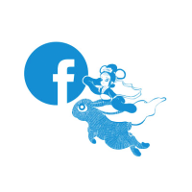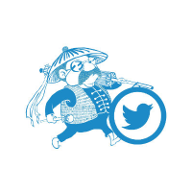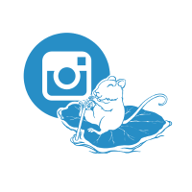









24 August 2016 by Suyen Hu

The 2016 Chinese New Year’s Day will always be unforgettable for us. When we were students we stayed in an all lady’s accommodation in North Oxford and we liked to go to Summertown for a walk after dinner. We often saw the iconic logo of the world-famous BBC on our little excursions: so familiar yet seemingly so distant and faraway from our ordinary lives.
We could perhaps imagine a visit inside the world famous BBC building, but it would never occur to us that one day we might talk to the public ourselves. Then all of a sudden, some years later, this visit came true on Chinese New Year’s Day when, unbelievably, we were invited to an interview! My friend Lihui was literally shivering before we entered the studio. I was shivering inside too, but I didn’t want to make my friend more nervous. So I tried my best to look composed and calm.
We were told we would be given five to ten minutes at most, but we felt this five minutes might be very difficult to fill! However, our friendly host Annie Othen seemed to sense our nervousness and with a very broad smile started to ask us about the traditions of Chinese New Year.
I had prepared beforehand a diagram of the essential things we need to get ready on the Chinese New Year’s Eve: good food, firecrackers and Yuan Bao, which is money in the shape of ancient Chinese coins. I carried on to introduce more of the dos and don’ts of the Chinese New Year period, such as not to throw away any rubbish on New Year’s Day itself as this is believed to bring bad luck to your finances in the coming year, and to take a thorough shower on the New Year’s Eve to get ready for the new year.

Annie seemed fascinated by these traditions and customs. She told us merrily that she knew she was a Monkey. We told her that 2016 was her year: the Year of Monkey. We told her that for the monkey people in the Year of Monkey, there would be a lot of opportunities ahead. Then she saw our Naughty Monkey book on the table and very bravely she started reading directly the first paragraph in Chinese with the aid of the Pinyin text. Unfortunately, it didn’t make a lot sense to our Chinese ears so she ‘translated’ it back to English by reading the English version to our unseen listeners. This was quite fun to us and we were completely at ease after this friendly and warm conversation. The music came in and we thought we should make our leave.

We were amazed, then, when Annie asked us to stay for another ten-minute session! After the music was over, she changed the topic from Chinese New Year to how and why we ended up in Oxford making books. This question was another big surprise to us and we were totally unprepared. But it gave me an opportunity to tell Annie that actually I was from Taiwan and that I started making the books with a dream to preserve our traditional cultural heritage as much as I could, just like the British do with their dedication to historic conservation.
Then my friend Lihui who is from Mainland China and grew up in the aftermath of the Cultural Revolution joined in to tell Annie how she was inspired by my idea to get the lost Chinese traditions and stories back to the world in English as a start, as she first heard most of the stories from me. Governmental control on publishing materials is still very strong in China and old traditions and stories were supressed and some were lost completely during the Cultural Revolution. We have the freedom in the UK to make more English speaking people aware of this old civilisation and traditions which she thought would be a great thing for the future generations of Chinese after all the political turmoil.
Lihui told Annie she felt her future and hope was in England, which was such a brave thing to say for a timid girl like her to say publicly who was accustomed to political orthodoxy. Deep in my heart, I felt thrilled to hear what my friend said for my dream and for my hope. Though I grew up with democracy and freedom in Taiwan, there has been a growing number of anti-China people who deem everything related to ‘Chinese’ or ‘China’ to be uncivilised and barbarian without referring to the long history and civilisation. The mere word Chinese could anger them so much as to provoke some extreme behaviours.
I have started worrying about our beautiful traditional buildings and ceremonies which have given me tremendous joy and tranquillity since my childhood. Will there be a Taiwanese version of the Cultural Revolution in Taiwan to get rid of everything related to the word ‘Chinese’, even the language? I can’t imagine it. Not just for Lihui, my hope is also here in England where people will stop to listen to different voices, will embrace the good values of different cultures and will not allow politics to tangle with culture and civilisation.
I really wanted to do something to improve the image of Chinese in the English speaking world. Not all of us were materialist or political militants. Apart from food and strange things happening in a still totalitarian society, there are still people who care about sharing core values and wisdom from the old East to the West. Neither Taiwan or China would make us feel safe to deliver this message without losing our freedom of speech. We have been fortunate to be in Oxford.
When we finally finished our interview and reported back to reception, the lovely lady there joked to us ‘Gosh I thought you girls would be there forever!’ I hadn’t realised at all that we spent nearly half an hour with Annie in the studio. It seemed quite unusual to the receptionist at least.
Leaving through the door of BBC Oxford we felt as though we were walking out of a dream. We not only talked about Chinese New Year on the Chinese New Year’s Day, but we also talked to the whole of Oxford about our dreams to change the world in our own ways!